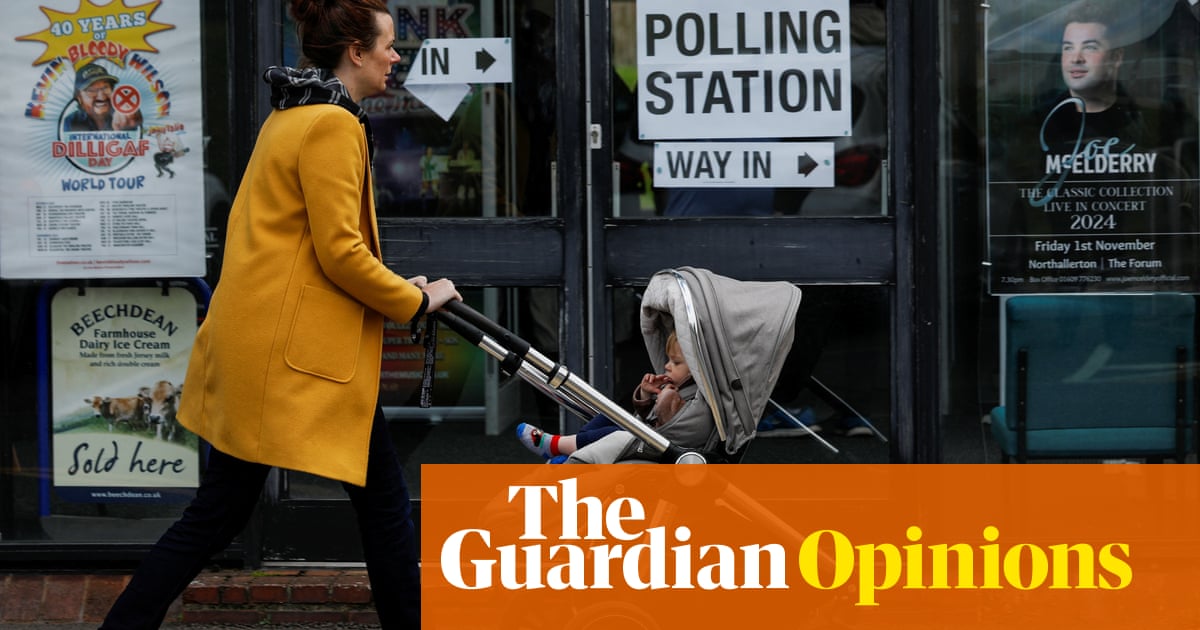Back in the early 1970s when he was lead singer with the Faces, few of his fans would have expected Rod Stewart to be still belting out Maggie May at Glastonbury more than half a century later. Long gone are the days when rock stars hoped to die before they got old. Instead, 80-year-old rock stars symbolise the fact that Britain and other developed economies have ageing populations. Women are having children later in life and having fewer of them.
Politicians are starting to fret about the prospect of a decreasing number of people of working age supporting an ever-increasing number of pensioners. Just this week, the education secretary, Bridget Phillipson, said the falling birthrate had “worrying repercussions” and thatshe hoped tobe able to make it easier for women to have children.
This might seem a curious concern given that the UK’s population has risen from fewer than 60 million at the turn of the millennium to 67.2 million by 2022 and is expected to rise by another 5 million by 2032. Yet the fertility rate in England and Wales – the number of live births per woman – is currently 1.44, the lowest since records began in 1938 and well below the 2.1 level consistent with a stable population. If that trend continues and net migration is reduced, the number of people in the UK will eventually start to decline.
So much is obvious. Less clear is what, if anything, policymakers should do to raise fertility rates. The answer may well be nothing. A falling population is not a disaster. It might even be a good thing.
Hungary’s prime minister, Viktor Orbán, would certainly disagree with that conclusion. So would France’s president, Emmanuel Macron, and Italy’s prime minister, Giorgia Meloni. Italy has a tax-free allowance – a “baby bonus” – for women having children. Macron has a plan for France’sdemographic rearmament. In 2019, Hungary offered women a€30,000 (£26,000) interest-free loanthat would be non-repayable in the event that they had three or more children. The chances of the UK matching that level of generosity given the strains on the public finances are infinitesimally small.
Yet the evidence from countries that have already hit the panic button over declining populations is not encouraging. Fertility rates in Italy, France and Hungary remain well below 2.1 despite the fiscal inducements. And that’s because the factors that are persuading women to delay having children – or not have children at all – are stronger than government tax breaks or interest-free loans.
Make no mistake, these are welcome changes. Women are better educated than they have ever been. More of them go to university, so have the possibility of securing interesting and well-paid jobs. It is not surprising that for many of them career progression takes precedence over childbirth in their 20s. The days when households were financially dependent on one male breadwinner are over – and a good thing too.
It is also tough for women who do want to start a family at a younger age. Rising house prices have resulted in home ownership rates among 25- to 34-year-oldsdeclining from 59% to 39%since 2000. Rents have also increased sharply.
Given all this, it is hard to see much future for pronatalist policies in the UK. The reality is that the demographic makeup of Britain will change over the coming decades as people live longer and fertility rates remain well below 2.1. If net migration is below the levels of recent years, the Office for Budget Responsibility thinks thepopulation could be 1.2 million lowerin 2072 than it was in 2022.
Is this really so much of a problem? The economist David Miles – one of those responsible for putting together the OBR’s economic and fiscal forecasts – says not. In a recent paper, he argues that the catastrophising about shrinking populations is “largely bunkum”.
In part, that’s because the global population is expected to continue growing for some decades to come, putting added pressure on the environment and speeding up climate breakdown. It makes little sense to adopt policies designed to increase fertility rates when the UK is an overcrowded island in an overpopulated world.
But it is also the case that the combination of an ageing and gently falling population could result in living standards rising. Older people tend to save more and that means the ratio of capital to worker will increase. There will, in other words, be fewer workers but they could well be more productive.
Measured by gross domestic product, the economy would be getting smaller, but GDP per head – a much better measure of wellbeing – would be increasing. There would be less congestion on the roads, less pressure on public services and less competition for housing. Japan already has an ageing and shrinking population and seems to be coping just fine.
To be sure, there will still need to be policy changes in Britain. If there are going to be fewer young people, it is bad for the economy as well as a waste of individual potential for them not to be working. To that extent, the motivation behind the government’s botched welfare reforms makes sense. Childcare needs to be more affordable and changes to the pension age might also be required to extend the working lives of those able to do so.
But it is not inevitable that a falling population would be bad for the economy. It would certainly be good for the planet.
Larry Elliott is a Guardian columnist
